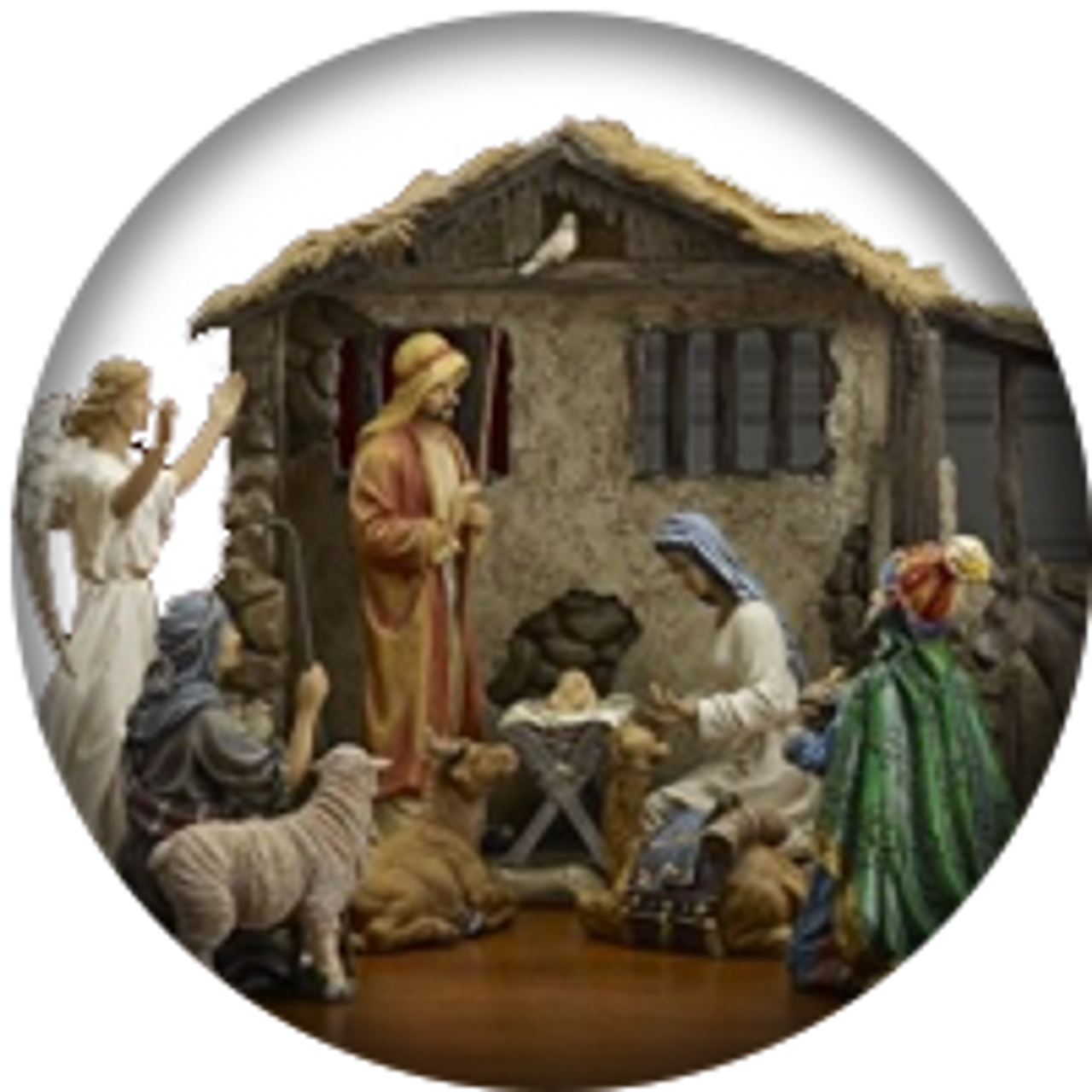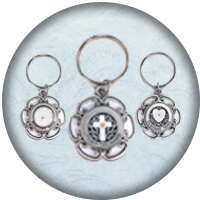PASCHAL MYSTERY, JOY AND DIVINE MERCY, PART V SHARING THE MERCIFUL HEART OF THE TRINITY
Kathy Boh on 7th Apr 2016
PASCHAL MYSTERY, JOY AND DIVINE MERCY,
PART V
SHARING THE MERCIFUL HEART
OF THE TRINITY
MERCIFUL LOVE AT THE HEART OF THE TRINITY
“Jesus Christ is the face of the Father’s mercy… Mercy has become living and visible in Jesus of Nazareth, reaching its culmination in him. The Father, ‘rich in mercy’ (Eph 2;4) … revealed his name to Moses as ‘a God merciful and gracious, slow to anger, and abounding in steadfast love and faithfulness…”(Exo 34:6) 1
“Jonah sailed away from the mercy and forgiveness God wanted him to preach, but not because he was afraid of abuse by those to whom he came to preach God’s word. Even after his deliverance from his three-day ordeal in the belly of the whale…
Jonah was reluctant to offer mercy to Israel’s enemy. He did not want the inhabitants of that great city, which had invaded his homeland, to be forgiven. Nineveh was a city so large that it mimicked the whole world and all the world’s sins. Jonah wanted all Ninevites punished for their sins, even children and dumb animals. Nineveh, he was determined, was not to receive God’s mercy delivered in person by Jonah’s preaching. When Jonah had total success and all the people and even the animals repented and were forgiven, Jonah pouted instead of rejoicing that salvation had come to the world. ” 2
“With our eyes fixed on Jesus and his merciful gaze, we experience the love of the Most Holy Trinity. The mission Jesus received from the Father was that of revealing the mystery of divine love in its fullness. ‘God is love’ (I Jn 4:8-16), John affirms for the first and only time in all of Holy Scripture. This love has now been made visible and tangible in Jesus’ entire life. His person is nothing but love, a love given gratuitously… Everything in him speaks of mercy. Nothing in him is devoid of compassion…” 3
Jesus came to preach to Jerusalem God’s mercy, but that mercy did not endear him to those lording it over their own people.
Jesus would become like Jonah—cast out of the city and entombed for three days as Jonah was in the whale. The gospel warns us that we can disrespect the forgiveness being offered to us in the life and death of Jesus, but just like Jonah, we cannot hide. God’s tender mercy will find us.” 4
SHARING GOD’S MERCY
So… just how do we respond to this magnificent mercy? …Personally, inwardly, in our relationship with God? And personally, outwardly, in our view and relationships with others?...
“Pope Benedict encourages us to ‘never despair of God’s mercy,’ because the love and mercy of God will always win out in the end…” 5
“[At the] ‘first World Apostolic Congress on Divine Mercy’… [Pope Benedict] tells us to ‘go forth and be witnesses of God’s mercy,’ not our own human mercy…” for “it is God’s mercy and not our own, which is a ‘source of hope for every person and for the whole world.’ Here, Pope Benedict is not simply splitting hairs.
He is clearly placing the emphasis on God’s mercy towards us in our need, as the starting point.” 6
In keeping with this “starting point”, Pope Francis believes that “In our parishes, communities, associations and movements, in a word,
wherever there are Christians, everyone
should find
an oasis of mercy…” 7
BUILDING AN “OASIS” OF GOD’S MERCY
—A SAFE PLACE TO BE
An oasis is defined as a “pleasant or restful place to be… surrounded by something unpleasant” [Mirriam-Webster]. As we find that we can depend less and less on the world around us to be warm, friendly and forgiving, we—as God’s own people—need to be even more aware of our call to kindness and mercy.
“Jesus affirms that mercy is not only an action of the Father,
it becomes a criterion
for ascertaining
who his true children are.
[What a statement!]
In short, we are called to show mercy because mercy has first been shown to us.
Pardoning offences becomes the clearest expression of merciful love, and for us Christians, it is an imperative from which we cannot excuse ourselves… To let go of anger, wrath, violence, and revenge are necessary conditions to living joyfully…” 8
It’s great to look at all the positive ways that we can do “mercy”. There is much wisdom available on the “works of mercy” and other aspects of being an instrument of mercy in this needy world.But there are some other vital moves that we need to make if we are to see mercy prosper among us. We need to, in a sense, “weed our gardens” before expecting to see mercy richly gr0w.
As we seek to build a beautiful fabric of merciful love all around us, we need to also recognize some “destroyers” of mercy and love… that act like worms… like poison… like stink bombs—undermining our loving efforts and determined acts of kindness and mercy.
WEEDING THE GARDEN OF MERCY
Pope Francis has mentioned some things specifically, and spoken passionately about envy and jealousy, slander and gossip. [Pope Francis has written several meditations, sermons, and writings on these subjects. Some earlier ones from 2013 and 2014, include: “In the sure hands of God”; “Slander kills”; “The threat of gossip”; “Hearts free of envy and jealousy”; “The temptation to gossip about others”; “Unmasking the hidden idols”; “A gentle, humble light full of love”…] 9
Pope Francis has meticulously explained just how destructive envy, gossip and slander can be. We can get used to some things that—although some like to see them as lesser sins—they can, in their destructive power, be like termites destroying the supports of a home… or a debilitating physical condition that greatly limits our activity, ability, and function.
“Gossip divides communities. It destroys communities. [blogger’s emphasis]. It is the devil’s weapon. How many beautiful Christian communities have we seen go well but then the worm of jealousy and envy entered [one or] some of its members and sadness comes and they take offence. 10
“[Pope Francis] said, “we are sinners: all of us. We have sinned…But…”
But slander is something else. It is a sin but also something more, for it wants to destroy God’s work and is spawned by something very nasty…by hatred. And the person who generates hatred is Satan. [blogger’s emphasis] 11
As we have mentioned, Pope Francis repeatedly mentions “envy… gossip… slander…” One could call it a very unholy threesome.
It was envy that started
the devil off on his unrelenting path of destruction.
Pope Francis explained, “The devil could not endure that man be superior to him, that man and woman be made in the image and likeness of God… God made us and he is our Father. He made us beautiful as he is beautiful, more beautiful than the angels, greater than the angels. The devil envied the greatness and the beauty of God’s rational creature, and through the devil’s envy, sin entered the world… This is why he made war on them and laid before them a road that leads to death.” 12
“A person who is under the influence of envy and jealousy kills. John the Apostle tells us: ‘whoever hates his brother is a murderer’. And someone who is envious, who is jealous, begins to hate his brother [31]… Let us pray… that the seed of jealousy not be sown among us… that envy have no place in our hearts…” 13
“… [When] Satan [gets] involved… what seemed at first like a calm trickle of water turn[s] into a flood of water. In this way, the temptation grows, infect others, and justifies itself…” 14
“A community, a family is destroyed by this envy that the devil teaches in the heart and causes one to speak ill of the other.” 15
[To repeat:] “…Slander is something else. It is a sin but also something more, for it wants to destroy God’s work and is spawned by something very nasty…by hatred. And the person who generates hatred is Satan. Falsehood and slander go hand in hand.” 16
Speaking of falsehood, “Jesus warns us [14] that the devil is a ‘liar and the father of lies’ and ‘a murderer from the beginning’. ‘You are of your father the devil, and your will is to do your father’s desires. He was a murderer from the beginning, and has nothing to do with the truth, because there is no truth in him. When he lies, he speaks according to his own nature, for he is a liar and the father of lies.’ (Jn 8:44)” 17
“Pope Francis shows how these lies cause harm to individuals and communities.” We are so used to gossip… and we compare them to other sins that we call “more serious” sins (in our false, fallen and foolish estimation), so that we miss God’s view. To continue with Pope Francis’ comment:
“We are used to gossip, to spreading rumors, and we often transform our communities as well as our family into ‘hell’ where this kind of crime leads to killing one’s brother and sister with one’s tongue is manifest…
The Apostle John (1Jn 3:15) tells us that anyone who hates his brother is a murderer. …” 18
DRAWN INTO OTHER SPIRITS:
THE SPIRIT OF THE WORLD OR THE HOLY SPIRIT
Pope Francis has explained that it is easy to be drawn into the “spirit of the world" instead of being led by the Spirit of God, and into mercy…” 19
“It is the spirit of the world that cunningly entices us to idolatry… It is not enough to say, ‘I believe in one God’. We must ask ourselves how to put this commandment into practice. In fact too often we continue to live as though he were not the one God…”
[T]he danger of idolatry [is] brought to us with the spirit of the world. And Jesus was quite clear about this… I am sure that none of us stands before a tree to worship it as an idol… But idolatry is subtle; we have our hidden idols and the road through life to arrive at the kingdom of God, to be near it, entails unearthing hidden idols… The road of love for God is a road of love, a road of faithfulness. (L’O June 12, 3013) 20
“When we do not profess Jesus Christ, we profess the worldliness of the devil, a demonic worldliness…
We can [do] as much as we want, we can build many things, but if we do not profess Jesus Christ, things go wrong. We may become a charitable [organization], but not the Church, the Bride of the Lord. The same thing happens to children on the beach when they build sandcastles: everything is swept away, there is no solidity… (Homily, Sistine Chapel, Mar 14, 2013) 21
So, it becomes obvious that there are some diametrically opposed choices involved—some of which we are easily blinded to, seeing only what is going on in superficial, surface kind of ways.
How do we build on “solid” ground,
and not build “sandcastles”?
FROM THE FATHER, THROUGH THE SON, BY THE HOLY SPIRIT
Let’s look again, for a moment, as if from the beginning, at this “Jesus Christ” that Pope Francis said (earlier in this article, above) we need to profess…
Jesus literally “counted the cost” and released us from the chains of sin and death. Jesus was willing to die a horrible death for us, to pay the price for salvation (and every grace and blessing that comes from that). But that wasn’t enough help for God to give his beloved children.
In continued, great mercy and generosity, He and the Father had planned to send the Holy Spirit to remain with us. “…Now I am going to the one who sent me… But because I told you this, grief has filled your hearts. But I tell the truth, it is better for you that I go. For if I do not go, the Advocate will not come to you. But if I go, I will send him to you.” (Jn.16:5-7)
The Holy Spirit comes to enliven and bring to life the words and the heart, the spirit and the person of Jesus, Himself. He told us that the Spirit would be a “Comforter” in the midst of the tribulations that Jesus said we would surely face; the Holy Spirit could enable us to manifest Jesus’ overcoming power and the peace that Jesus spoke of in regard to the troubles of this world. (Jn. 16:33)
The Holy Spirit was sent to empower us to know and understand the truth; to pray with and through us when we do not knowhow to pray; the power to win every battle against the enemy; and more… He enables us to both proclaim and to show the mercy of God.
WARRING AGAINST THE FORCES OF EVIL
MAKING A CLEAR PATH FOR MERCY
So, what does it mean to “win every battle against the enemy”? What is this “power”? What is this “prayer” to “enable us to both proclaim and show the mercy of God”?
Pope Benedict says that “God’s mercy is intended for all sinners… God alone is qualified to sit in judgment over human hearts… [I]n our battle against evil, we should be mindful that Satan, not human beings, is our main adversary. Therefore, we should engage in spiritual warfare for the salvation of souls.” 22
What we need to do goes beyond the “works of mercy” and into the realm of the Spirit of God and prayer—both for God’s mercy and, importantly, against destructive evil powers at work among us.
We often hear about “spiritual warfare”, and have seen in references above differences in living in the spirit of the world and the devil, and living according to the (Holy) Spirit of God… Frequently, we find ourselves ignorant of just what that means or entails. The following describes what the scriptures describe as “spiritual warfare” tactics and weapons, to enable us to live by the Spirit of God, and fight against unholy spirit influences and powers.
Continuing the scripture verses referring to Pope Benedict’s comments about spiritual warfare [above], we quote Eph. 6:10 and II Cor 10:4, respectively:
“Finally, draw your strength from the Lord and from his mighty power…” and “…[F]or the weapons of our battle are not of flesh but are enormously powerful, capable of destroying fortresses…”
And continuing the Ephesians verses: “Put on the armor of God so that you may be able to stand firm against the tactics of the devil. Therefore, put on the armor of God that you may be able to resist on the evil day and, having done everything, to hold your ground.
So stand fast with the belt of truth, clothed in righteousness as a breastplate, and your feet shod with the gospel of peace. In all circumstances hold faith as a shield, to quench all the flaming arrows of the evil one. And take the helmet of salvation and the sword of the Spirit, which is the word of God. With all prayer and supplication, pray at every opportunity in the Spirit...” [Eph.6:11, 13-18]
ST. PATRICK LIVED MERCY AND “SPIRITUAL WARFARE”
One of many saints who lived and continually evidenced a rich flow of the Spirit of God throughout His ministry was St. Patrick.
Just a few weeks ago, we wrote about St. Patrick’s amazing life. Throughout the research and writing of this particular blog, I cannot help but think of St. Patrick and the steadfast example of mercy and the power of God that he exhibited in his life in Ireland.
His heart was full of the Lord and overflowing with His mercy, as Patrick—with enormous passion and determination—travelled through Ireland.
He wrestled against the very real demonic powers every step of the way, being so like Christ in his motivation: desiring to see this Celtic people set “free”… freed from the bondages of idol worship and demonic oppression through the powerful political and religious control of the Druid priests.
St. Patrick’s life conveys to us that we do not have to be a first century apostle to show forth the power of the Holy Spirit and win decisively against evil powers around us.
SHOWING THE MERCIFUL LOVE OF GOD
We began this blog speaking of the love of Jesus Christ. “The Church’s first truth is the love of Christ. The Church makes herself a servant of this love and mediates it to all people: a love that forgives and expresses itself in the gift of oneself. Consequently, whenever the Church is present, the mercy of the Father must be evident. [blogger’s italics] 23
“Merciful Like the Father, therefore, is the ‘motto’ of this Holy Year. In mercy, we find proof of how God loves us. He gives his entire self, always, freely, asking nothing in return. He comes to our aid whenever we call upon him…” 24
“Let us not forget the words of Saint John of the Cross:
‘as we prepare to leave this life,
we will be judged on the basis of love’…
The Church feels the urgent need to proclaim God’s mercy. Her life is authentic and credible only when she becomes a convincing herald of mercy. She knows that her primary task… is to introduce everyone to the great mystery of God’s mercy by contemplating the face of Christ.
The Church is called above all to be a credible witness to mercy, professing it and living it as the core of the revelation of Jesus Christ. From the heart of the Trinity, from the depths of the mystery of God, the great river of mercy wells up and overflows unceasingly. It is a spring that will never run dry…” 25
FINAL THOUGHTS
So… again we ask, as we did at the beginning: Just how do we respond to this magnificent mercy? …Personally, inwardly, in our relationship with God? And personally, outwardly, in our view and relationships with others?...
Pope Francis says:
Let us ask the Lord to show us and the world the beauty… and fullness of treating each other with kindness, with respect…
Let us ask for this grace for us all…to show us the beauty and the fullness of this new life, of being born of the Spirit…” 26
Let us recognize the need to ask the Lord for help in showing His mercy. Let us start there... And ask for the help of the Holy Spirit in searching out our own hearts and in preparing the groundwork for such loving, mercy-filled kindness.
One way or another, let us go back to Him—Who is so rich in mercy towards us— for both the way and the grace to see and be what we need to be.
FOOTNOTES
1“Introduction: An Invitation to Mercy, by Pope Francis” from BEAUTIFUL MERCY, by Dynamic Catholic, p. 9
2THE RELUCTANT PROPHET
3“Introduction…”, p. 11
4THE RELUCTANT PROPHET
5POPE BENEDICT’S DIVINE MERCY MANDATE, by David Came, Marian Press, Stockbridge, MA 01263, p. 83
6 Ibid, p. 139
7 “Introduction…”
8 Ibid, p.13
9 WHO IS THE DEVIL? WHAT POPE FRANCIS SAYS, by Rev. Nick Donnelly,pp. 11-14, 31, 42, 43
10 Ibid, p. 31
11 Ibid, p. 14
12 Ibid, p. 13
13 Ibid, pp. 31-32
14 Ibid, p. 12
15 Ibid, p. 14
16 Ibid
17 Ibid
18 Ibid
19 Ibid, pp. 18-22
20 Ibid, pp. 33-34
21 Ibid, p. 19
22 POPE BENEDICT’S DIVINE MERCY MANDATE, by David Came, Marian Press, Stockbridge, MA 01263, p. 86
23 “Introduction…”, p. 15
24 Ibid
25 Ibid, p. 17
26 WHO IS THE DEVIL? WHAT POPE FRANCIS SAYS, by Rev. Nick Donnelly, p. 3










